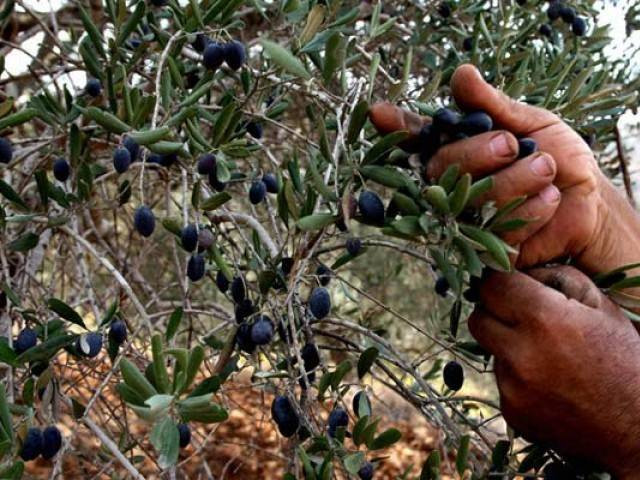Accused in olive tree scam yet to be punished
Probe committee finds import of infected olive plants

It is believed that cultivation of olives could potentially end Pakistan’s dependence on edible oil. PHOTO: AFP
The project was part of the Public Sector Development Programme (PSDP) aimed at promoting olive cultivation across the country to reduce the hefty edible oil import bill.
The National Agriculture Research Council (Narc) in November last year awarded a tender to a company for providing 400,000 imported olive plants. Upon arrival, the Department of Plant Protection (DPP) gave a go-ahead certificate for the distribution of these plants despite the fact that most of them were infected and undersized.
Olive plant imports: Sub-committee constituted to further probe irregularities
Initially, when the issue surfaced, the Ministry of National Food Security and Research constituted a six-member inquiry committee to determine the reasons and find the people responsible for the loss.
The committee unearthed mismanagement and lapses in the procurement process handled by Narc and the olive project management.
The committee also listed other factors that contributed to poor communication with the supplier such as mistakes in the supply order, poor supply terms and conditions, less-than-efficient inspection procedure, negligence on the part of management and poor coordination.
It noted that the importing company mishandled imports and ignored the quality standards, especially the size and health of plants. It concluded that the onus lay on both sides - the importing company and the project management.
The report also held the DPP responsible for the lack of observation and quality control despite the presence of fungus.
It was also observed that, against the agreed terms and conditions, supplies did not start within the stipulated period of 45 days.
On March 9, 2016 while showing its dissatisfaction over the inquiry into the olive project, the National Assembly Standing Committee on National Food Security and Research constituted another committee to further probe the issue.
Recommendations
The inquiry report recommended conducting a performance and technical audit of the olive project through the Ministry of Planning to ensure improvement in project management and the future outcome.
PARC aims to train female olive farmers
However, the standing committee expressed its dissatisfaction over the inquiry and constituted a sub-committee under MNA Rao Muhammad Ajmal Khan to probe and present a report within 30 days to the main committee.
The new committee recommended the ministry to immediately remove the incumbent director general of DPP, who is a retired pilot with no expertise in the field.
However, in May this year, the committee only suspended Nasir Mahmood Cheema, Project Director and his assistant Saqib Salim, and gave a clean chit to the rest of the people involved.
Narc spokesperson Ghulam Mustafa did not respond when he was approached over phone for comments.
It is believed that cultivation of olives could potentially end Pakistan’s dependence on edible oil.
Published in The Express Tribune, July 19th, 2016.
Like Business on Facebook, follow @TribuneBiz on Twitter to stay informed and join in the conversation.





1733130350-0/Untitled-design-(76)1733130350-0-208x130.webp)












COMMENTS
Comments are moderated and generally will be posted if they are on-topic and not abusive.
For more information, please see our Comments FAQ